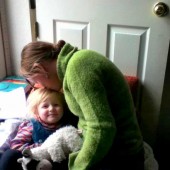
Story-to-Song (STS) is a collaborative musical process in which a participant and a musical guide work together to create a song from the participant’s spoken story. Within this process can be found stages that progressively transform a written text into a song with a melody, verses, chorus, groove, and chord progression. The authors, who have worked as both musical guides and participants, explore this method in a scholarly realm in order to deconstruct the stages for composing a song. Through a creative deconstruction of this method, they have gained insight into how to create a sustainable, collaborative partnership.
Continue Reading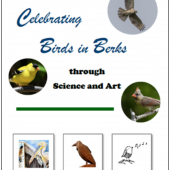
Abstract: Sustainability depends on biological diversity and the investment of individuals and communities in maintaining ecosystems. To engage the public in local biodiversity—specifically birds—we developed a program combining science and the arts. The science involved a group field experience, led by area birders guiding observations and providing information on the birds; the arts produced written reflections and visual representations of the birds and birdwatching. The integration of experiences, as manifested in field notes, artwork, and writing, reinforced understanding of, as well as interest in, birds and their natural habitats. In short, the data confirmed that participants gained a deeper appreciation for the natural world when seeing it in the contexts of both science and creative expression.
Continue Reading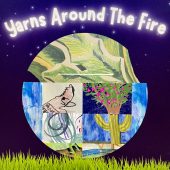
Abstract/Description: What happens when educators and professionals take a long-standing pedagogical activity, The Council of All Beings, and reshape the experience into a picture book? This paper provides a link to the story and relates the storytelling process that occurred with such an adaptation. The paper then explores the benefits of storytelling for young people and considers how co-creating stories can be an antidote to ecophobia while fostering empathy and sparking emotional engagement in the natural world. Finally, the author suggests that co-creating storytelling activities and picture book creations could be used to help children reimagine the world.
Continue Reading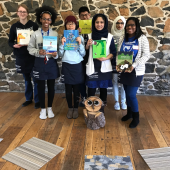
Abstract: A partnership between a university and local arboretum was expanded to include the campus library as a collaborator. Instead of having sustainability-themed programming between the two institutions focus on just the environmental components of the Sustainable Development Goals (SDGs), a library brings attention to literacy and information access across all aspects of the partnership. We share two public programs held between our university and an arboretum with strong involvement by the library in the development and execution stages, thereby increasing the connections across the SDGs and progress towards the 2030 agenda.
Continue Reading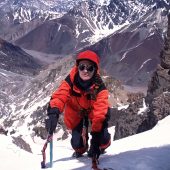
Abstract: Glacial archaeology is an emerging field of scientific research, rapidly expanding in Scandinavia, the Alps and North America. And yet its origins are to be found in the Andes of Argentina. Constanza Ceruti is the first woman high altitude archaeologist in history. Her pioneering contributions to this field of research involve having ascended and explored, sometimes solo and unsupported, more than one hundred peaks above 5000 meters in remote corners of the Andes. In 1999, Ceruti codirected the scientific excavations on mount Llullaillaco (6739 m), the highest archaeological site in the world, and co-discovered three extraordinarily preserved frozen mummies, together with an outstanding collection of artifacts from the Inca civilization (currently housed at the Museum of Mountain Archaeology in Salta, Argentina). In recent years, Ceruti has climbed hundreds of mountains in different parts of our planet, to study (from an anthropological perspective) their role in pilgrimage, folklore, popular devotion, mythology, identity and tourism. Her academic production includes more than one hundred scientific papers and twenty-five books on sacred mountains of the Americas, Europe, Asia, Australia and Polynesia. A northern hemisphere predominance in anthropology at large, and particularly in high mountain and glacial archaeology (associated also with mobbing and male chauvinsm in mountaineering), have led to a lack of proper recognition, not only for her own pioneering career, but for the rightful place of the Andes at the forefront of academic research on the sacred role of mountains in ancient cultures.
Continue Reading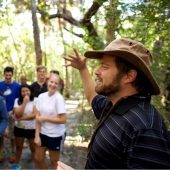
In this paper, I draw from the fields of curriculum studies and the environmental humanities to address the sustainability issues associated with the Anthropocene and to theorize what it means to reinhabit our unique bioregions. I argue that it is time to transgress the fragmented and mono-disciplinary investigations emblematic of the academy by embracing pluralistic ways of knowing and going beyond conventional epistemologies to better understand the cultural forces involved in wicked problems such as climate change. Using autoethnography, I draw from my personal experiences related to higher education for sustainable development while discussing what it means to better appreciate a problem’s intractability and to hold our assumptions open to questioning. Additionally, I make connections to Donna Harraway’s conception of staying with the trouble in the midst of these socio-ecological turbulent times. Accordingly, I theorize what it means to stay with the trouble by learning to “love the questions” inherent to studying sustainability issues while articulating the roles that reflection, storytelling and transdisciplinary scholarship play in (re)envisioning a future that sustains the (more than) human world.
Continue Reading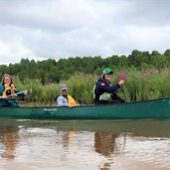
Continued implementation of conventional professional development strategies will likely fall short of the innovations needed to prepare teachers to fully engage in and implement environmental and sustainability education. The Rivers2Lake education program based in Superior, Wisconsin, USA illustrates a transformational approach to teacher professional development. We examine the program as a working example of three UNESCO learning processes that have been identified as aligning with and contributing to education for sustainability (Tilbury, 2011): collaboration and dialogue; engaging the whole system; and active and participatory learning. Through a review of these processes, the article offers considerations for innovating teacher professional learning for environmental and sustainability education. Key recommendations include shifting from isolated professional development events to ongoing professional learning as well as further investigation of the specific mechanisms that drive each of the UNESCO learning processes.
Continue Reading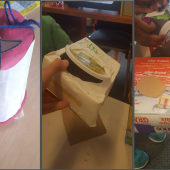
Abstract: This case study illustrates a cross-curricular learning experience, anchored in standards, where teachers and students actively engaged in co-constructed, inquiry-based learning and design thinking. The particular question this case study addressed was “How might students connect with environmental citizenship in authentic ways through media literacy experiences?” Specifically, the case study invited primary level learners to engage in a multimodal experience that was anchored in media literacy concepts and process. A pedagogical approach rooted in media literacy theory subsequently empowered students to make positive environmental changes in their communities and develop citizenship skills for the future. The project sought to develop awareness of sustainability through analysis, re-design, and production of snack food packaging. Educator reflections offer ideas for project improvement, such as producing for a wider audience, offering more choice, and making broader subject connections. This case study has implications for practice by demonstrating that, through various stages of scaffolding and integrated lesson design, young children are capable of applying sophisticated media literacy theory, inquiry, and design thinking to meet multiple curriculum standards.
Continue Reading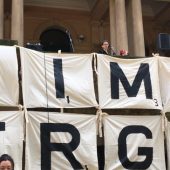
Transformative sustainable pedagogy and public intellectual work share the same aims and guideposts, including upholding higher education’s foundational intentions of fostering moral character in tomorrow’s leaders. Radical modes of sustainable education, including regenerative pedagogy, which tends to the global shift to restore, respect, and regenerate ecological and societal balance, and inside-out pedagogy, which helps learners take their inner seeds, sprouts, and blossoms of good ecocultural intentions to stages of external fruition, speak both to educating learners and engaging the public. If pedagogues aim to encourage students to put beliefs into action and be leading voices in ethically addressing today’s pressing environment and society problems, this may require role modeling by having the courage to do so themselves. In these contexts, the author relates her own experiences speaking for Extinction Rebellion as an illustration of expanding notions of what it means to be a sustainability educator today.
Continue Reading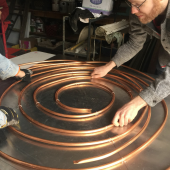
Abstract: Part Two of a two-article series describes water conservation through graywater use and rainwater harvesting. Sustainable methods of heating water for a recirculating shower, and potential methods for water filtration and purification are presented. Also addressed is the feasibility of sustainable showering alternatives. An opportunity for educators and students to collaborate in the development of an off-grid recirculating shower is provided as well.
Continue Reading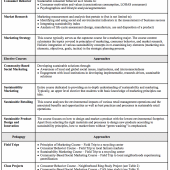
Abstract: As noted by a growing number of marketing scholars, the importance of educating marketing students on sustainability should be an important objective for marketing educators and business schools alike. The focus of sustainability-based marketing education is on the greater good of the environment and society, while adjusting internal and related external processes to sustainability principles. In this conceptual paper, we adopt a broadened definition of sustainability distinct from the narrow understanding of Corporate Social Responsibility (CSR) adopted by the business world in general and make recommendations for using this broadened definition to reframe marketing curricula and pedagogy. We give specific examples of assignments and pedagogical approaches for four core marketing courses as well as four marketing electives. By doing so, we hope to foster a new marketing mindset and a new generation of marketing practitioners who embrace, internalize, and practice sustainability holistically.
Continue Reading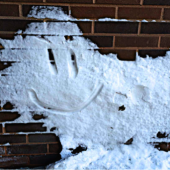
Abstract: This paper introduces an experiential learning assignment “Snow Challenge 2015” incorporated into an undergraduate-level interdisciplinary humanities and social science-based course focusing on a single Arctic Indigenous culture: the Sámi [Lapps] of Finland, Norway, Sweden, and the Kola Peninsula. The assignment used the open-source app Siftr and an accompanying open-access informational website on Sámi snow terms to allow students to apply Lule Sámi snow terminology to snow phenomena they observed in and around their home campuses and neighborhoods. The assignment’s goal was to enhance student learning related to each of the four categories of environmental literacy presented in Hollweg et al.’s (2011) framework: knowledge, attitudes, competencies, and behaviors. A content analysis of a random sampling of student essays written at the conclusion of the assignment showed significant enhancement of student learning, particularly in the areas of attitudes and competencies. The assignment helped model for students the value and nature of an Indigenous-centered curriculum and the pragmatic nature of Indigenous traditional knowledge in living effectively within a winter environment.
Continue Reading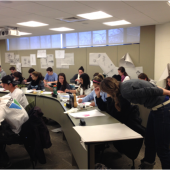
Engaging students not majoring in science, sustainability or environmental studies in learning environmental literacy and shifting their attitudes and behavior toward nature often requires a multi-perspective approach and presents unique challenges. We sought to: (1) pair artistic perspectives with botanical concepts to educate and interest our students in learning environmental literacy, (2) engage our students in careful observation and visualization of nature, and (3) increase the environmental sensitivity of our students by connecting botany with nature based art. To do this we designed a pre-class assignment, an in-class botanical art workshop, and a written reflection assignment that asked students to view, conceptualize, and create works of botanical art as a multi-perspectival process of engaging with relevant scientific processes and environmental concerns connected to botany. Here we provide a justification for the value of bridging science with art, detail our approach, describe student survey responses and thoughtful written reflections, and illustrate lessons learned and future plans.
Continue ReadingAbstract: Using a mixed methodology, we followed the preparation of fifteen teacher candidates through a summer content immersion and schoolyard ecology field experience as part of their alternative route to teacher certification program. The primary purpose of our summer project was to support and learn from the funds of knowledge of the teacher candidates and migrant youth. Next we sought to determine if a learner-centered teaching, modeled in a content immersion that explored the inner life of cells, could be applied heuristically to co-plan and teach schoolyard ecology. The results suggest that a learner-centered teaching translates well between content and field immersions and can positively support the cultural and community wealth of both candidates and migrant youth while affirming and deepening our appreciation of the local natural world.
Continue Reading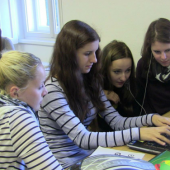
Abstract: The aim of this case study was to develop, apply and evaluate a science-education workshop format to communicate climate change to young people. Based on current theory in climate change communication and Education for Sustainable Development, the workshop has been applied in different contexts with more than 300 children and teenagers. A specification of the consecutive steps should help practitioners to use the workshop in their contexts. While results of the application of the workshop should give an insight into what can be expected from the workshop, an impact assessment of the participants who took place in the workshop outlines the effects it has on students. This paper does not only provide hands-on advice on how theoretical climate change communication knowledge can be translated into action, it also outlines the impacts of the described workshop.
Continue ReadingChronicling a semester-long civic engagement project, this essay explores the efforts of a senior seminar course to collaborate with a local wilderness preservation organization. The essay reflects on the role of students in their communities, their connections to wilderness, and the challenges and rewards of civic engagement.
Continue Reading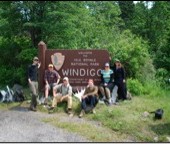
Abstract: For five years we taught a field philosophy course in Isle Royale National Park to study if and how wilderness experience, coupled with a care-based and community-focused curriculum in place-based ecology and environmental ethics, could help students develop empathy for nonhuman nature. Empathy for the natural world can positively impact environmental attitudes and behaviors; empathy also plays an important role in citizenship skills and actions. Using a constructivist grounded theory qualitative analysis of student pre-, on-, and post-course writing, we found that students consistently demonstrated shifts in empathetic awareness and individual agency all years but one, when the course size was larger. Several factors impacted the development of an empowered sense of self and moral agency, including: the use of narrative and storytelling in the curriculum, the inclusion of student-driven choice-based assignments, and group size. Experiential environmental learning focused on the development of empathy can provide a meaningful path for students to bridge moral agency, environmental attitudes and knowledge, and citizenship skills and behavior so they can connect their values with action These results have consequential impacts for sustainability learning and action.
Continue Reading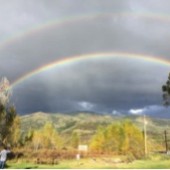
Abstract: In his landmark book Native Science (2000), indigenous educator Gregory Cajete eloquently articulates the motivations and questions that drive this study. For Cajete, effective education of our time entails “finding heart.” Finding heart is an active process within and beyond the person. It is evident in ethically and spiritually grounded work and being that embody meaningful connection to and care for others and nature (p. 288). This article relates to the process of finding heart through sustainability education. It presents a grounded-theory-based study of aspects of sustainability education that motivate or detract from activating hope and agency among undergraduate college students. Specific aspects of conceptual and social engagement, as well as the duration of these effects, are examined in some depth, with the voices of students themselves reflecting the diversity, depth, and power of their experience. The author concludes by suggesting that generating hope and agency among students is a vitally important outcome for sustainability education as part of the larger movement for sustainability. She also suggests curriculum design considerations for effectively activating hope and agency among students.
Continue Reading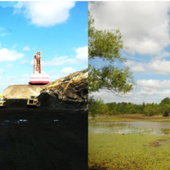
This paper describes a three-week professional development program, for inservice science teachers, which included on-site field trips to different energy production sites, explored the variety of opinions about them (via film, podcasts, news media, and expert lectures), and incorporated mathematical modeling as a lens through which to evaluate the relative sustainability of each energy type. The teacher participants explored oil, natural gas, hydroelectric, nuclear, wind, and coal energy production methods. This paper describes in detail their experience at a coal strip mine and a coal fueled power plant. For each type of energy, the teachers completed a pre- and post-assessment on their understanding of how the energy source was used to generate electricity and their perceptions of the environmental costs of each. The participants’ change in understanding of the energy production methods and increasing awareness of environmental costs are shared. Further, in their own words, participants describe the impact of the professional development on their own knowledge base and their classroom teaching as well as their perceptions of experiential learning as a vehicle for conceptual change.
Continue Reading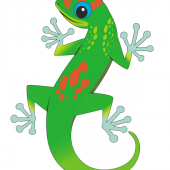
This study presents outcomes from the Girls Energy Conservation Corps, a research and development project that produced a series of six patch activity guides for girls age 8-14 who are members of the Girl Scouts of Eastern Massachusetts. The program focused on integrating engaging online and real world activities that involved girls in learning about climate change and their role in it, in saving energy, understanding the importance of collective goals and action to address climate change, and using new media creatively to educate peers and the community about energy conservation. Positive changes in knowledge, behavior, and attitudes pre to post suggest that a carefully designed program can address the challenges of educating children about energy conservation and climate change at this age, even if participant exposure to the program is brief. Findings also bring to light that developmental differences may be important to deconstruct in future studies when applying adult-tested behavior change models and theories to youth.
Continue ReadingIntroductory urban planning courses provide an effective platform for delivering education for sustainable development (ESD) competencies. As general education courses, they constitute a unique niche for conveying sustainability concepts, theories, and applications to undergraduates. Learning outcomes include new skill sets, such as transdisciplinarity. One vexing question, however, is how to ascertain if ESD is actually being delivered. This paper suggests that instructors can answer this question by building an understanding of their classrooms, students, and objectives over time using simple techniques. We illustrate our course design considerations and our attempts to gain insight by inspecting class assignments and student survey data. We hope to engage readers in a conversation that develops an outcomes assessment paradigm which recognizes the oftentimes hard-to-quantify nature of affective learning outcomes inherent to ESD, and embraces the values of exploration, diversity, and emergence intrinsic to sustainability.
Continue Reading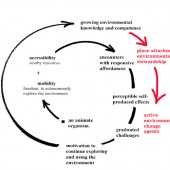
Learning in the outdoors has significant educational advantages for children in the Primary School years and the need to connect with nature is becoming increasingly prominent in research worldwide. Pro-environmental behaviour, especially in the early years, has been shown to have a causal relationship with connectivity with the natural environment. Place-based outdoor learning promotes a relationship with the natural environment and constructs deep environmental knowledge and understanding of the world that surrounds learners. Embedding Indigenous culture and knowledge into outdoor learning within Primary School programs enables local knowledge and understanding to permeate throughout activities in explicit and experiential ways. A place-based pedagogy recognises the importance of forming intimate relationships with place through regular visitations to the same outdoor environment. One of the many global challenges confronting teachers working in Primary schools is how to implement holistic learning into their educational programs. This paper explores how an Australian case study utilises place-based outdoor learning and environmental sustainability within the school curriculum.
Continue ReadingPDF:PramodSpring2014 Key Words: Sustainability Education, State of the Field, Prescott College, Ph.D. Program in Sustainability Education The problems we are facing are linked. It is not a set of problems. It is a system of problems. Now it is time to look at the system of solutions. – Janine Benyus, Nobel Laureate Symposium, 2011. […]
Continue ReadingIn recent years, Co-Curricular Sustainability Programs (CoCSPs) have been established at many higher education institutions. However, few such programs have developed learning outcomes or assessment processes to measure the types of learning that are occurring within their programs. This case study creates synthesis between sustainability education and student leadership competencies and shares a place-based framework for designing and assessing learning outcomes. By utilizing learning outcomes and assessment processes, leadership educators can strengthen the effectiveness of their sustainability programs and facilitate transformational learning experiences for students across campus
Continue ReadingIn response to the hitherto unchallenged assumptions supporting a globalized economy, the Leadership for Sustainability Education (LSE) program, formerly Leadership in Ecology, Culture, and Learning, was developed as part of an emerging sustainability movement. This article highlights the favorable conditions that provided the context for the evolution of the LSE program, including organizational policies and practices at Portland State University, and a commitment to community-university partnerships that conveyed the University’s motto, “Let Knowledge Serve the City.” We discuss the potential that higher education has to transform practices and ways of thinking necessary for ecological sustainability and social justice. Following this overview, we outline the main elements of the LSE Master’s degree program, including the four key learning areas: self-understanding and commitment, systemic view of the world, bio-cultural relationships, and tools for sustainable change. Additionally, we describe the types of learning experiences and assessment strategies employed throughout the program. We conclude by sharing the key authors and thinkers who influence the program and coursework.
Continue Reading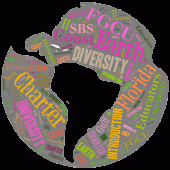
This article describes a collaborative online project that focused on the Earth Charter, particularly on its principles related to diversity. The project was conducted in two online courses of three sections in two colleges at Florida Gulf Coast University (FGCU): the College of Arts and Sciences and the College of Education. One section of twenty-three students in a Composition II course and fifty-four students in two sections of an Introduction to Diversity for Educators course collaborated in mixed teams on a four-stage problem solving project that exposed the participants to a larger community of learners and reinforced shared responsibility for the present and future welfare of the human family and the global community.
Continue Reading
PDF: Galeshi Winter2013 Abstract: This literature-based report aims to synthesis and summarize the existing research on female’s (meaning adult women and girls) propensity for enrolling and continuing in the science, technology, engineering, and mathematics (STEM) fields at through university level. To create and maintain a sustainable future, it is essential to support females enroll and […]
Continue Reading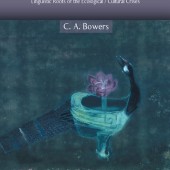
Clare Hintz provides the kind of review that brings just the kind of perspective needed for delving deeper into Chet Bowers important work on the importance of language use and history in sustainability education. While giving us a good idea of what to expect from the book, Clare also brings us a larger perspective that helps understand Chet Bowers and his special role in stimulating our educational processes to be truly about and in favor of a sustainability perspective.
Continue Reading(Send job or events postings to editorjse@gmail.com) Events ————————————————————————————————————————- ACPA Institute on Sustainability University of Colorado Boulder, Colorado, USA June 17 – 19, 2012 Why Send a Team? Last year, some of the best feedback received from participants was from those who attended as members of an institutional team. While individual attendance is perfectly fine, […]
Continue Reading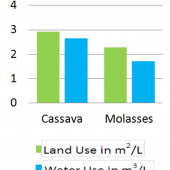
: Thailand is facing a serious problem with their reliance on foreign oil imports. With nearly 90% of their crude oil, gasoline, and diesel being imported, the country is searching for ways to improve their national energy security by lowering their demand for foreign oil. Bioethanol from cassava and molasses are two promising technologies that could help Thailand work toward their goal of energy security. However, debate is still on going to determine which feedstock should be chosen to power the country’s bioethanol industry. This teaching case study presents the background and sustainability analysis for both cassava and molasses based bioethanol as well as teaching notes and discussion questions. It is intended for high school seniors or college undergraduates in courses that address sustainability-related issues and technologies.
Continue Reading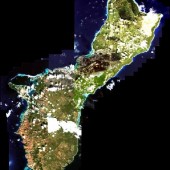
Graduate students enrolled in an education research course (many of the students were school teachers) that the author taught during the spring 2010 semester participated in this “green” course project. Those students who were not school teachers, who worked for private companies or government agencies, focused their projects on green communities, workplaces, or households. Students conducted their projects based on inquiry-based learning, and this sustainability study reported in the current paper itself derives from an inquiry-based approach. The results from this study demonstrated that daily curricular activities at universities and schools provide an important way to support environmentally responsible living. Implementing green course projects similar to the one described here is one of many ways in which university teachers can incorporate “sustainability” into their curricula.
Continue Reading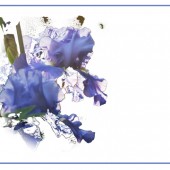
In this clarion call for broad-based change in the way buildings are designed and built and occupied, Papesch and his colleagues bring attention to the broad swaths of society that are involved in this fundamental aspect of our daily lives. While bringing into play diverse groups of lay people and professionals, from poets to engineers, with a focus on architects and designers, they call for changes at every level, from the development of a Green Mindset among the population at large, to local governmental code changes to, as they argue most importantly, fundamental changes in design curricula that lead to the primacy of an interdisciplinary approach to climate change mitigation in building design.
Continue Reading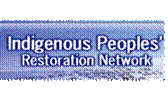
In this deeply articulate analysis, Dennis Martinez argues that Traditional Ecological Knowledge (TEK) of indigenous communities can be complementary to Western science, but“ bridging” or “integration” with Western Science will inevitably lead to second-rate status for TEK. The unique and powerful, place-based and ancient, traditional ways of knowing are based on the same fundamental human ways of analyzing the natural world. But the language used to conduct, express and translate indigenous understanding is in danger of loss to oppression and assimilation.
Continue Reading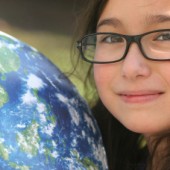
Susan Santone simply and elegantly tells us how sustainability, or ecological, economics can be made real for K-12 education. She shows us how easy it is to bring the very real, and fundamental, conceptual breakthroughs offered by sustainability economics to a grade-school curriculum through simple applicable exercises that children will easily relate to.
Continue Reading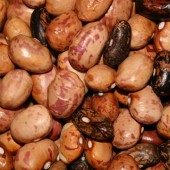
With elegant simplicity, Rick Medrick makes the case for the importance of transformational change as part of our education process to bring about sustainability. He brings forth the need for creating learning environments where real, transformational change, can happen. And he invokes the role of the “servant-leader” in establishing those environments as part of an organic and evolutionary change process that we can help to generate.
Con una sencillez elegante, Rick Medrick hace el caso por la importancia del cambio transformacional como parte de nuestro proceso educativo para llegar a la sustentabilidad. Trae al frente la necesidad de crear ambientes de aprendizaje a donde el cambio verdadero transformacional puede ocurrir. Y el invoca el papel del “líder-sirviente” en establecer estos ambientes como parte de un proceso de cambio orgánico y evolutivo que nosotros podemos ayudar en generar.
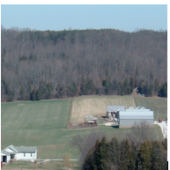
This paper focuses on understanding the collaborative process as a critical aspect of building community capacity to respond to change and uncertainty in the landscape. Can focusing on place-based relationship building enhance a community’s ability to make difficult land use decisions? Collaborative initiatives to preserve farmland and open space have emerged as a process that supports local involvement and ownership of community decisions; however, the variable success of these initiatives highlights the need to evaluate what factors influence individual support for collaboration. This study uses a case study to examine the role of sense of place, as well as other attitudinal and demographic factors, in determining support for collaborative efforts to preserve farmland. Drawing on analysis of responses to a survey of residents in Harrison County, Indiana from a period when the community faced intense growth pressures that threaten unique natural resources and farmland. The findings demonstrate that an individual’s sense of place and environmental attitudes positively influence support for key steps in the collaborative process, including the acceptance of strategies to address farmland loss.
Continue Reading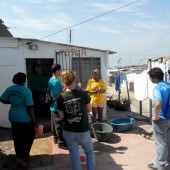
It is widely acknowledged that the sustainability challenges facing the world require new approaches to teaching and learning. At the community level, however, sustainability priorities are context specific, so prescriptions of what and how to teach for sustainability are limiting. In higher education, one innovative approach to sustainability education that acknowledges the limits of conventional coursework involves courses based on “shared action learning” – a process in which students, faculty, and community sponsors share learning experiences while working on sustainability projects for a specific community. Shared Action Learning can be applied in any community context near or far from campus ranging from the very local campus community to distant settlements across the globe. This paper describes the processes, opportunities and challenges of shared action learning through five stages: (1) project impetus, (2) contextual research and project planning, (3) community engagement and project refinement, (4) action, and (5) reflection and reporting. The roles of students, faculty, sponsors, and communities throughout the semester-long shared action learning project are explored through two examples – a course at Clark University in Worcester, MA that focuses on SAL within the college campus community and a Worcester Polytechnic Institute program through which students work on projects with partners in informal settlements in Cape Town, South Africa.
Continue ReadingGuest Editors: Denise Mitten and Rick Medrick Table of Contents From the Guest Editors Beings of the Earth Rick Medrick, Prescott College Opinions To Divine Is Human Nancy Mattina, Prescott College NOLS: Bringing Sustainability Education to the Front-Country Karly Copeland, NOLS Awareness to Action: […]
Continue Reading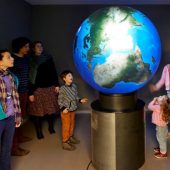
Abstract: This paper reports part of a larger study on the development of systems thinking skills in German 7th grade comprehensive school students regarding the climate. Research has shown a fragmented understanding of climate change among students that hardly accounts for the dynamic interrelations in the climate system and may pose a barrier in understanding adaptation and mitigation strategies (Shepardson et al., 2017, 2011, Calmbach 2016). While much is known the impact of short-term interventions on the general system understanding of students, what is lacking to date is 1) a specific intervention on climate system understanding and 2) insights into the process of developing system understanding in students. Helpful insights in this context come from Conceptual Development theories for they allow the development of systemic thinking to be viewed in terms of conceptual expansion or conceptual change. Starting from these desiderates, a teaching-learning sequence was developed based on the SYSDENE model of system competence (Frischknecht et al. 2008). In the sequence young learners systematically link experiences from formal science education with the experiences at three non-formal learning environments. A mixed-methods approach was used to explore the impact of this 3-month sequence on 19 7th grade students. A written pre-/post-test suggested a significant improvement in Climate System Reconstruction for the group (pre-test Median = 6.75 vs. post-test Median = 12.5, Wilcoxon Test: p = .003, r = .82). However, a qualitative analysis of classroom conversations, interviews and concept maps indicated that cognitive development toward a higher level of system thinking was neither continuous nor did every student reach it. Moreover, the SYSDENE model’s Competence Area “Describe System Model” proves critical. Being able to describe the main climate system factors is not sufficient, one also needs to be able to distinct weather from climate and grasp several scientific concepts related to the climate (e.g. greenhouse effect, water cycle, evaporation, reflection) in order to understand climate as a system.
Continue Reading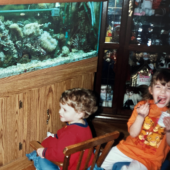
Abstract: Gaining a better understanding of human behavior change is vital to encouraging individuals to adopt an environmentally sustainable lifestyle and to the long-term goal of preserving nature. To explore how life experiences lead to the adoption of environmentally sustainable behaviors, this author turned to autoethnography. Through this reflective method, the author examines their development of environmental identity and their experiences with nature, as they relate to major concepts within the field of conservation psychology, such as ecological literacy, Theory of Planned Behavior, and connection to nature. Leading concepts concerning environmental identity in the conservation psychology literature suggest a very specific pathway for developing environmental identity, and thus pro-environmental behaviors, including experience in nature from a young age, the presence of an environmental mentor, and access to environmental literature. However, the author reveals that there may be other pathways to development of environmental identity, which include virtual environmental mentors (e.g., nature TV show hosts), environmental media (e.g., magazines, documentaries, and internet sources), and other methods of driving emotional connection to nature (e.g., sense of place). Alongside the author, the reader will have the opportunity to consider their environmental experiences and factors influencing their environmental identity, in relation to these major concepts within conservation psychology.
Continue Reading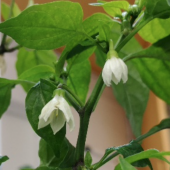
Abstract: To successfully implement the UN’s Sustainable Development Goals (SDGs), we must encourage all citizens to work together to enable a good life not only for us now but future generations too. In this article, we present an experiment carried out in autumn 2020 on a smart aeroponic garden. The goal of the experiment was to learn more about aeroponic cultivation and IoT technology and to acquire the know-how that would enable the participants to influence the environmental burden of food production. Our experiment showed that technology could also be used to introduce sustainable development themes to reach those target groups whose attention could not be attracted through other methods.
Continue Reading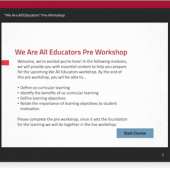
Abstract: Staff members play an important role in guiding students through living lab sustainability projects at Harvard University. Since there are significant opportunities for co-curricular learning in these settings, we created the “We Are All Educators” professional development workshop to empower those staff members to optimize and track student learning throughout these projects. In this case study, we will briefly summarize key principles of CCL and discuss its benefits as a tool for sustainability education in higher education. We will also describe our planning and implementation process for the workshop, the content of our training materials, and the results. Finally, we will end with key takeaways, as our workshop may be applicable to co-curricular learning in a variety of higher education contexts.
Continue Reading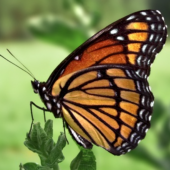
Abstract: This word journey explores flaws in our approach to cultivating environmental ethics and caring for biodiversity, especially among youths, through the lens of Carson McCullers’ classic story about the tragic but common failure of so many to achieve love between human beings.
Continue Reading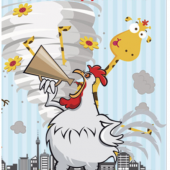
Abstract: A challenge with engaging students in taking action to address the climate crisis is that they may assume that they have little or no agency related to having an impact on audiences or policymakers. In this report, we describe students’ use of videos and digital storytelling as multimodal tools for communicating the need to address the climate crisis with different audiences. We discuss the importance of narratives in digital storytelling as a means to foster student engagement with issues of sustainability, as well as provide an overview of different types of digital multimodal productions students can create to promote a sense of agency. Next, we describe one program in-depth (Project IF) and explain how the similar use of digital tools promotes creative problem solving and leveraging media to explore climate issues. We conclude with a discussion of the critical media literacy practices associated with the effective use of digital tools for addressing the climate crisis.
Continue Reading
Abstract: Ecoliteracy can be defined as an understanding of natural systems and connections between biotic and abiotic factors within sustainable future. Green consumerism is an observable side of ecoliteracy. The aim of this study is, therefore, to examine the long-term effect of environmental education programmes intended for in-service teachers in terms of behavioural change. The teachers were joined ecopedagogy-based education programmes funded by TUBITAK (The Scientific and Technological Research Council of Turkey) in Turkey and were followed up after seven years. The methodology of the study was mixed method within a case study. Quantitative data were collected by a survey and analysed by R statistics. Qualitative data were analysed by content analysis. It was found that the green consumer behaviours of in-service teachers have improved in the long term. However, it is needed more follow up studies within different time frames and country comparison studies in the future.
Continue Reading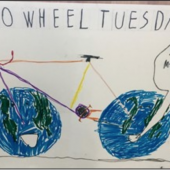
Sustainability education has changed identities a number of times over the last decades. How might whole-school sustainability (WSS) prepare students to address current global issues? A focus on teaching the Sustainable Development Goals (SDGs) creates opportunities for students to develop systems thinking and to learn to take civic action. We visited four schools in the United States to observe and document replicable models of K-12 WSS. In our research, we used a mixed methods approach to code data from interviews, classroom observations, and school campus tours. Results from a case study analysis of four K-12 schools map out pathways toward implementing and refining WSS education programs to include the SDGs, systems thinking, and civic action.
Continue Reading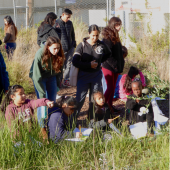
This essay explores the role of critical pedagogy in environmental justice education. We discuss the need for teaching a love of nature (biophilia) as an entry point for developing a caring relationship and sense of stewardship with the natural world. Place-based education and ecopedagogy offer liberatory potential to make education more transformative and focused on the intersections between social and environmental justice. After discussing theoretical approaches of ecopedagogy and indigenous perspectives, we describe a project in which a principal converts the hardscape at two schools into natural habitats and a new teacher engages her students in ecopedagogy.
Continue Reading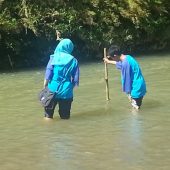
Water cycle literacy attracts great attention to the observers of climate change. Local and global impacts of the water cycle threaten human life and damage the Earth. Education is expected to be able to provide a way out of this problem. A Conservation-Based Learning (CBL) model was employed to understand the water cycle literacy among students in three cities in East Java province, Indonesia. There were 6 (six) Senior High Schools with a total number of 396 students serving as the sample. Each school consisted of common classes and CBL classes. Water cycle literacy aspects included knowledge, values, cognitive behavior, and acting behavior. The data were analyzed using a descriptive quantitative, and qualitative approach. The data were analyzed using a descriptive quantitative, and qualitative approach. The literacy aspect of values, attitudes, thinking, and acting skills in the water cycle in the CDL class is higher than that of the common class. Learning the water cycle using the CBL model gave significant effects on the students’ strengthening of water cycle literacy (sig. 0.5).
Continue Reading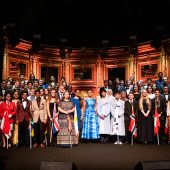
In this Q&A, Journal of Sustainability Education senior editor Amanda Bielawski interviews Diana Virgovicova, recipient of the 2019 Stockholm Junior Water Prize (SJWP). Virgovicova was among the SJWP recipients who recently issued a joint statement to the United Nations (UN) General Assembly that focused on the urgent need for water action, recognizing its intricate links to climate change. Rooted in the praxis framework, the joint statement focused on the critical role sustainability education, specifically, must and will play in turning scientific knowledge about the water-climate connection into actual action through policy change and other means. In this interview, Virgovicova underscored this point: “Education is the way to solve the water-climate sustainability crisis. We need to get more people involved. I think it is regrettable that environmental education is not a required assessment in schools.”
Continue Reading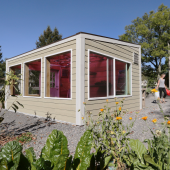
This case study describes a student-led campus sustainability initiative to design and implement a power-generating greenhouse at Allegheny College. The design of the greenhouse was carried out by students in collaboration with professionals in a variety of learning settings including research seminars, independent studies, paid internships, and senior thesis projects. By providing a detailed account of the student-driven design process and structuring the analysis around a framework of documented sustainability competencies, this paper identifies challenges and opportunities for utilizing living labs for sustainability education. Researchers observed that students who contributed to greenhouse development in multiple capacities developed several sustainable competencies. The project also demonstrates the difficulty of engaging students in both the planning and implementation stages of multi-year efforts. While the student-led design process introduced new logistical challenges, deep levels of student commitment and unique student backgrounds were critical to the greenhouse project’s success.
Continue Reading